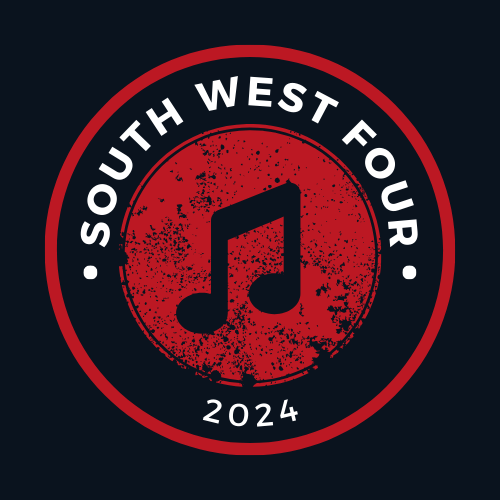The benchmark 30-year fixed mortgage’s average interest rate is now 6.39% today on September 11, 2024, which is 7 basis points less than it was the previous week. Mortgage rates have fluctuated but remain high. Experts predicted that by 2024, the 30-year mortgage will be gradually declining, finally falling below 6%. Mortgage rates fluctuate all the time, and several things might modify those forecasts between now and the end of the year. Check out our mortgage rate prediction for the most up-to-date information.
Compare 30-year mortgage rates today
Worldwide recession was prevalent in the early 1980s. For 30-year fixed-rate house loans, the mortgage rates were in the double digits. Freddie Mac data indicates that in 1981, the average annual mortgage rate reached a high of 16.63%. Since then, mortgage rates have decreased significantly because they haven’t increased by more than 10% since 1990.
The average yearly rate for 30-year fixed mortgages was around 6% at the onset of the housing crisis in 2008. However, several lending institutions saw rates drop below 3.00% in 2020 and 2021. If you qualify for a 30-year fixed-rate mortgage, you will make the same set payments for 360 months to cover the cost of your property. Your interest rate will not vary during the term of the loan.
In other words, you may start with a 3.50% interest rate and then increase it to 4.25% five years later, with the rate altering every year thereafter for a total of 30 years. Fixed-rate mortgages ensure that you know precisely how much your mortgage cost will be each month. When you know the amount you need to set aside on a monthly basis, it might be easier to budget and set aside money for housing-related obligations.
How to get the good mortgage rate
- Daily fluctuations in mortgage rates can be attributed to a variety of variables, including the unique circumstances of the borrower. If you want to keep your housing costs down, it’s critical to get the best mortgage rate on your 30-year fixed home loan. After all, in addition to paying interest on your mortgage, you will also be accountable for paying for upkeep, repairs, homeowners insurance, and property taxes as a homeowner.
- You must have strong credit in order to be eligible for the best and lowest 30-year fixed mortgage rates. The majority of mortgage lenders evaluate prospective customers based on their FICO credit ratings. A decent credit score is between 670 and 739, according to the FICO scoring algorithm.
- Regarding the credit scores that they anticipate their applicants to possess, various mortgage lenders have differing requirements. However, if your credit score is less than 620 on your FICO, you will often not be eligible for a traditional mortgage. You do still have choices if your FICO score is lower than that cutoff.
- Using the lender that your real estate agent usually deals with does not ensure that you will obtain the best mortgage rate for your property. Ask for referrals or use an internet tool to identify a lender who can supply you with the finest loan for your needs. Along with mortgage interest rates, each lender charges fees and closing costs, which add to the entire cost of the house loan.

What’s the difference between an ARM and a 30-year fixed-rate mortgage?
Monthly principle and interest payments for the duration of the loan are fixed in a 30-year FRM, which also has a 30-year term with a fixed interest rate. throughout a predetermined number of years, the interest rate on an adjustable-rate mortgage (ARM) stays constant. The interest rate on a 5-year ARM, for instance, stays the same for the first five years before changing for the remaining period. Though interest rates and monthly payments for ARM loans are usually cheaper initially than on a 30-year mortgage, they may increase when the fixed term expires.
When should i refinance a 30-year mortgage?
One option to reduce interest rates and expedite the payoff of a 30-year fixed-rate mortgage would be to refinance into a shorter term loan or a new 30-year mortgage with a lower rate. The ideal time to refinance can change depending on your situation.
Make sure you qualify for a low enough interest rate to meet your closing expenses, as closing fees associated with refinancing can vary from 2% to 6% of the loan’s principal amount. To determine whether refinancing makes sense financially, find out more about the refinancing process and compare current refinance rates to your mortgage rate.
What impacts 30-Year Fixed Mortgage Rates
- Major factor that influence your mortgage rate are your debt-to-income ratio and credit score. Additionally helpful are large savings and a steady employment. It also affects your mortgage rate how much you have to put down. 20% down is the typical amount. At many lenders, you can choose to put down as little as 3% or as much as you like.
- Your lender will require less of a loan if you did high down payment. Your total borrowing risk will also be reduced as a result, as will your loan-to-value (LTV) ratio the ratio of the mortgage loan amount to the purchase price of the house. Borrowers with low LTV ratios are often eligible for cheaper mortgage rates from mortgage lenders.
- However, a lesser down payment can enable you to move into a home much sooner if you don’t have much money for a down payment. Paying mortgage points is another way to reduce your interest rate. Your mortgage rate can be lowered by up to.25 percentage points, which are equivalent to 1% of the total loan amount.
| Homepage | Click Here |

